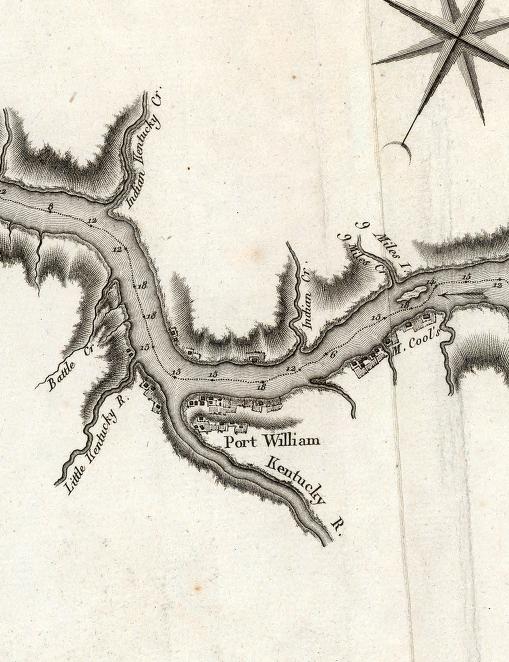He was an important figure in early Masonry and may have founded the city’s first pork packing operation, which sent
John Sheets (Sept. 9, 1789-Sept. 27, 1851) was probably born in Berkeley Co.,
In
He next entered the paper-making business on the same site. A Madison Courier, dated Jan. 10, 1828, refers to the mill, seven miles north east of
The mid 1830s appear to be the height of Sheet’s prosperity. By 1837, Sheets had laid out an addition to Vevay and his son Francis was elected as one of the first commissioners of that town in 1836. He also and Vincent Dufour were operating a steam-saw mill on the Ohio River and Washington Street by July 26, 1838 when that facility was mentioned in a deed.. In 1837, he had also paved a main street to the river, apparently to develop a wharf to attract river traffic. But Sheets was soon in trouble. He defaulted on a note on May 8, 1838 as shown in the deeds in which his property was sold for debt.
Sheets may have tried to bail out his fortunes by selling his land. Several deeds involving Sheets or his son Francis G. Sheets occur in
It is Sheets’ physical bravery that stands out as marking him as much more than a simple merchant. He stood trial for killing a steamboat man named White with a knife. He was acquitted on the grounds of self defense.
The most dramatic account of Sheets personal courage was given in a story related by columnist , Andrew Grayson, writing under the name Felix Adair, who gave an account of a riot by whites who were seeking guns being held by black residents.
The mob, which at one point shot it out with three blacks who were barricaded in a house, were dunking an elderly black man named Phillips in the
As related by Adair/Grayson, in the Dec. 7, 1881 edition of the Madison Courier the following took place at the river.
“John Sheets, from a position on the wharf, in a commanding tone cried out, ‘Kimberly, I warn you, don’t put that man in the river.’ Kimberly, in a weak voice, replied, ‘Go ahead, throw the fellow in, and put Sheets in too.”
“Yes, you put me in and, by the eternal gods, you’ll do before the sun sets. Don’t you put that man in the river,” rang out Sheets’ stentorian voice.
Although the phrasing has the ring of a good editor, there doesn’t seem much don’t it would have been a dramatic moment, no matter the exact words.
A newspaper obituary has been written by Samuel Cade, who was almost exclusively concerned with Sheets’ Masonic activities. Cade’s concluded that Sheets died broke, as he was no longer a Mason in good standing which means he probably could not afford the dues.
But that may not have been an accurate assessment. The 1850 federal census, taken on Sept. 13, 1850, a year before his death, shows him as a paper manufacturer (probably operating in Madison as he was out of the business in Milton Township), with $35,000 in real estate.
And he was living in the same neighborhood as other prosperous Madisonians. He was shown immediately after the household of merchant Caleb Lodge and two before one of
He is buried in the


2 comments:
This is absolutely fantastic! Thank you, and please keep it up.
Ken in Phoenix, Arizona
Many thanks
Post a Comment